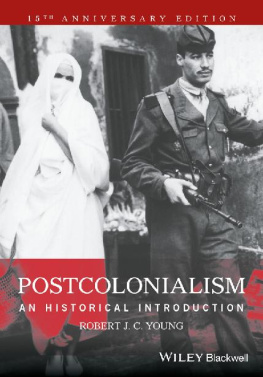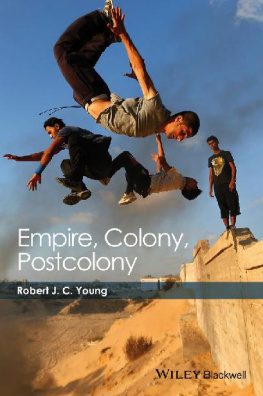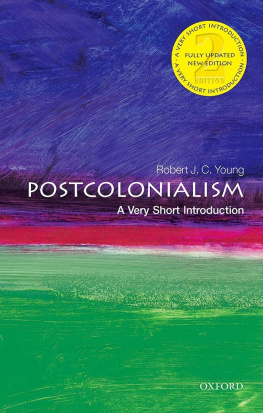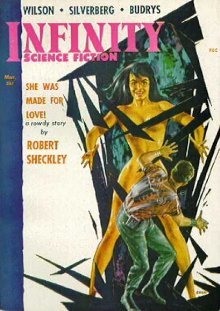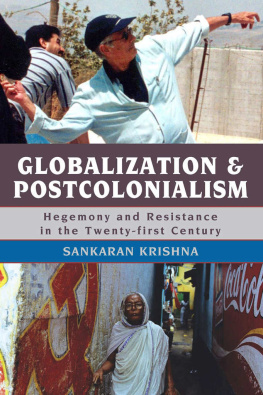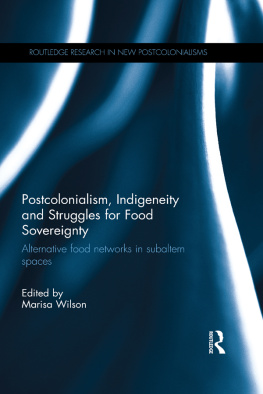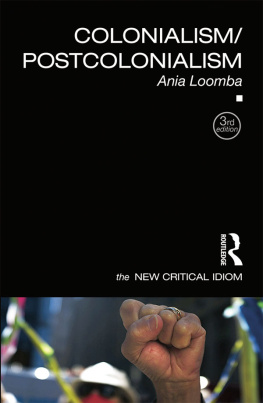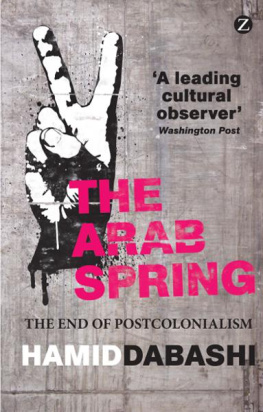This edition first published 2016
2016 John Wiley & Sons, Ltd
Edition history: Blackwell Publishing Ltd. (1e, 2001)
Registered Office
John Wiley & Sons, Ltd, The Atrium, Southern Gate, Chichester, West Sussex, PO19 8SQ, UK
Editorial Offices
350 Main Street, Malden, MA 021485020, USA
9600 Garsington Road, Oxford, OX4 2DQ, UK
The Atrium, Southern Gate, Chichester, West Sussex, PO19 8SQ, UK
For details of our global editorial offices, for customer services, and for information about how to apply for permission to reuse the copyright material in this book please see our website at www.wiley.com/wileyblackwell.
The right of Robert J. C. Young to be identified as the author of this work has been asserted in accordance with the UK Copyright, Designs and Patents Act 1988.
All rights reserved. No part of this publication may be reproduced, stored in a retrieval system, or transmitted, in any form or by any means, electronic, mechanical, photocopying, recording or otherwise, except as permitted by the UK Copyright, Designs and Patents Act 1988, without the prior permission of the publisher.
Wiley also publishes its books in a variety of electronic formats. Some content that appears in print may not be available in electronic books.
Designations used by companies to distinguish their products are often claimed as trademarks. All brand names and product names used in this book are trade names, service marks, trademarks or registered trademarks of their respective owners. The publisher is not associated with any product or vendor mentioned in this book.
Limit of Liability/Disclaimer of Warranty: While the publisher and authors have used their best efforts in preparing this book, they make no representations or warranties with respect to the accuracy or completeness of the contents of this book and specifically disclaim any implied warranties of merchantability or fitness for a particular purpose. It is sold on the understanding that the publisher is not engaged in rendering professional services and neither the publisher nor the author shall be liable for damages arising herefrom. If professional advice or other expert assistance is required, the services of a competent professional should be sought.
Library of Congress CataloginginPublication Data
Names: Young, Robert J. C., 1950 author.
Title: Postcolonialism : an historical introduction / Robert J. C. Young.
Description: Chichester, West Sussex, UK ; Malden, MA : John Wiley & Sons, Inc., 2016. | Includes bibliographical references and index.
Identifiers: LCCN 2016025068 (print) | LCCN 2016031249 (ebook) | ISBN 9781405120944 (paperback) | ISBN 9781118896853 (Adobe pdf) | ISBN 9781118896860 (epub)
Subjects: LCSH: PostcolonialismHistory. | PostcolonialismPhilosophy. | ColoniesHistory. | ImperialismHistory. | RevolutionsHistory. | Antiimperialist movementsHistory. | Developing countriesPolitics and government.
Classification: LCC JV51 .Y68 2016 (print) | LCC JV51 (ebook) | DDC 325/.3dc23
LC record available at https://lccn.loc.gov/2016025068
A catalogue record for this book is available from the British Library.
Cover image: A French soldier on patrol in Algiers, during the war of Algerian independence, 1962.
Photo: Stuart Heydinger, The Observer / Hulton Getty
Preface to the Anniversary Edition
I THE NOMOS OF POSTCOLONIALITY
This book is concerned with the revolutionary history of the nonWestern world and its centurieslong struggle to overthrow Western imperialism: from slow beginnings in the eighteenth century, the last half of the twentieth century witnessed more than a quarter of the worlds population win their freedom. It had been originally commissioned as an introduction to postcolonialism at a time when postcolonial theory formed an innovative body of thinking that was making waves beyond its own disciplinary location. That interest was the mark of a new phase within many Western societies in which immigrants from the global South had begun to emerge as influential cultural voices challenging the basis of the manner in which European and North American societies represented themselves and their own histories. The late Edward Said and Stuart Hall both symbolized the ways in which intellectuals who had been born in former colonies became spokespersons for a popular radical reevaluation of contemporary culture: a profound transformation of society and its values was underway. That revolution involved the consensus of an equality amongst different people and cultures rather than the hierarchy that had been developed since the beginning of the nineteenth century as a central feature of Western imperialism. Postcolonial critique has been so successful that by the beginning of the twentyfirst century the concepts and values of postcolonial thought have become established as one of the dominant ways in which Western and to some extent nonWestern societies see and represent themselves.
Although the basis for such arguments was generally the colonial experience, it has also been argued that such postcolonial critiques were also preparing the way for the transformation of society that was being produced by the demands of globalization. The celebration of difference became the activity of corporations as well as university professors. What this critique misses, however, is the possibility of different forms of difference: whereas state ideologies of multiculturalism employed traditional ideas of identity as a positive category in order to accommodate diversity, postcolonial intellectuals were rather spearheading a critique of the propagation of multiculturalism as an official ideology, employing a concept of difference as a nonpositive term whose value was inherently translational to challenge the very concept of fixed identities. Multiculturalism was a product of continued nationalist thinking, whereas postcolonial difference emerged as a critique of both.
Postcolonialism, however, goes well beyond the elaboration of issues of identity and difference. In this book, rather than introduce the topic by giving a summary of the ideas and concepts identified with postcolonial theory, I chose a different approach: to look at the genealogy of postcolonial theory in terms of its relations to earlier political and intellectual movements resisting imperialism and the cultural dominance of the West, tracing its origins in the struggles against colonialism in the past. Contemporary postcolonial theory was grounded in the inspiration of the work of earlier activists such as Frantz Fanon, Aim Csaire, CLR James, Albert Memmi, or even in those who were viewed more critically, such as Lopold Sdar Senghor or Marcus Garvey. As soon as I went back to consider that earlier generation and its very active relation to anticolonialism and decolonization, the vastness of the task opened up before me. For how could one analyse the context of imperialism in the twentieth century without also considering its formation, and the development of resistance to it, in earlier periods? Although there were many books on imperialism, both from a general as well as particular perspectives, and even more books on specific histories of decolonization, there were very few that looked at imperialism and the pressure for decolonization from the colonizeds point of view. Above all, there was no history of anticolonialismhistorical or intellectual. In this book I attempted therefore the first history of anticolonialism that would provide the context of centuries of active, political struggle. In order to do that, I made a number of decisions. First, I would offer not a blowbyblow narrative of the historical military and political struggles but rather focus on the intellectual and cultural production that was developed to support and promote anticolonial activism; secondly, instead of attempting an encyclopaedic history of all empires and of resistance to them, I would concentrate on the British and French empires not only because they were the largest in recent history but because together they embodied what might be called the two dominant western models of empire, of indirect rule and assimilation; third, that I would emphasize the constructive nature of the cultural and intellectual movements that accompanied the political processes of decolonization, and would not extend discussion to the subsequent history of the various countries after independence. This last choice was made partly pragmatically for reasons of space, but also because I wanted to present a different emphasis and perspective on the anticolonial movements than the commonlyvoiced criticisms of postcolonial countries (usually made by people from the former colonizing countries) for not living up to the challenges of independence. Perhaps some did not, but that was a separate story. What I wanted to convey instead was the excitement of the intellectual productivity of the time, the sense of its radical potential and its dynamic political aspirations for transformation that could continue to offer political inspiration into the future.


